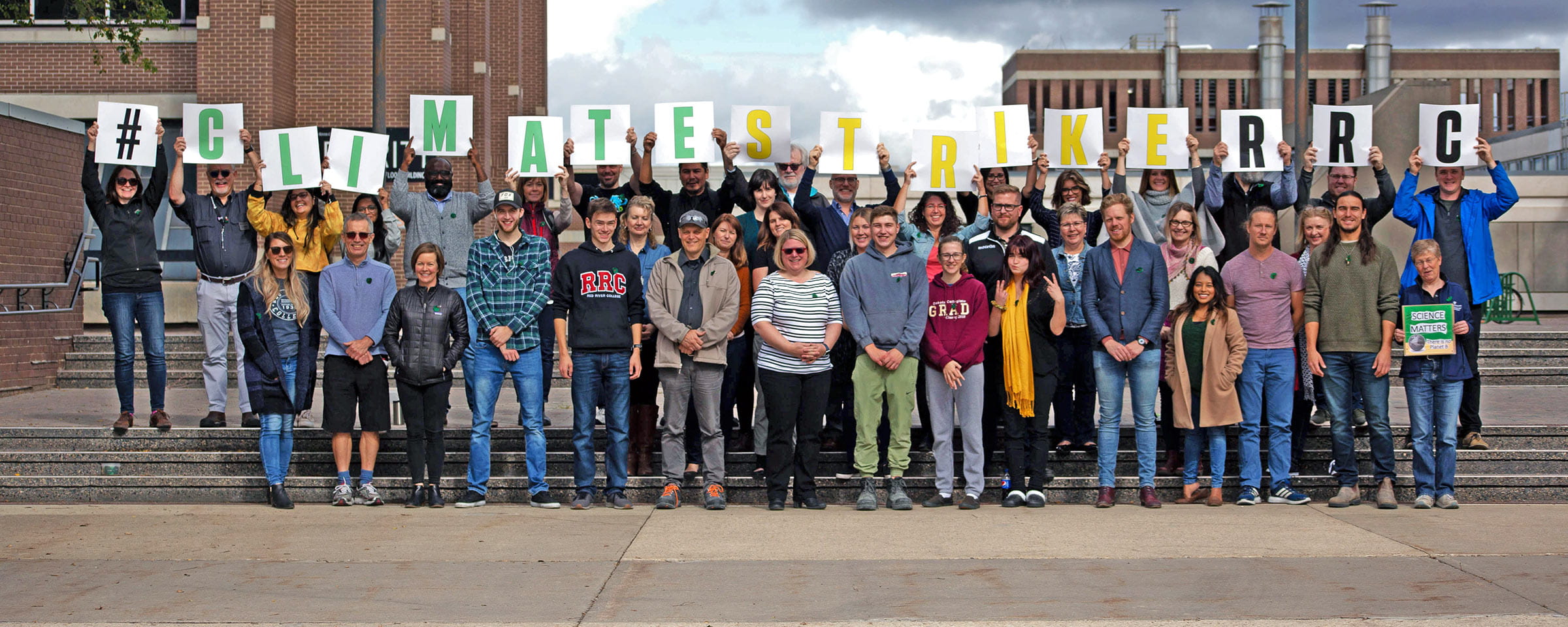


Sustainability is a core value at RRC Polytech, and we strive to be leaders in sustainability in everything we do. From what students learn in the classroom, to the paper that we use in our offices to the clean technology of the future that is being developed right here on our campuses, we are dedicated to continuous improvement. Together, our combined efforts can build a more inclusive, sustainable and resilient future for people and planet.
The Sustainability Office operates across administrative and academic areas of the College. We regularly have new projects on the go and are constantly working to implement, coordinate and advance existing and emerging programs and initiatives. Our office is a hub that engages the college community through programming, events, and communications. We’re grateful for the campus and community partners we work with to advance our collective sustainability journey.
RRC Polytech’s Sustainability Strategy is a comprehensive plan that will guide us towards creating a more sustainable future for RRC Polytech and our broader community. It outlines our sustainability goals for the coming years, and the actions we will take to achieve them.
RRC Polytech’s Sustainability Strategy is closely aligned with our Strategic Plan and with our commitment to advancing the United Nations’ Sustainable Development Goals.
Sustainability Strategy Actions at a Glance
Discover how RRC Polytech is working towards a more inclusive, sustainable and resilient future, for people and planet.
Read the Full StrategyRRC Polytech campuses are located on the lands of the Anishinaabeg, Ininiwak, Anishininwak, Dakota Oyate, and Denésuline, and the National Homeland of the Red River Métis.
We recognize and honour Treaty 3 Territory Shoal Lake 40 First Nation, the source of Winnipeg’s clean drinking water. In addition, we acknowledge Treaty Territories which provide us with access to electricity we use in both our personal and professional lives.